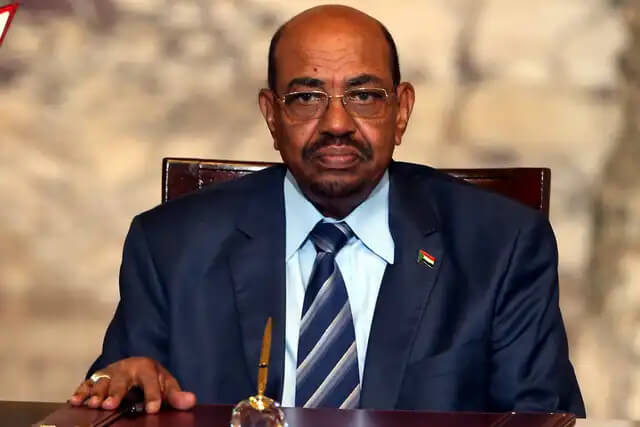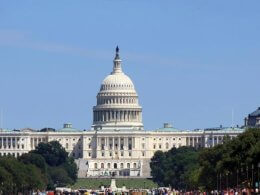Amid the ongoing power conflict in the war-torn African country of Sudan between the Sudanese Armed Forces, led by General Abdel Fattah al-Burhan, and the Rapid Support Forces (RSF) paramilitary group led by General Mohamed Hamdan Dagalo, the central character whose whereabouts are currently in question is the former Sudanese President Omar al-Bashir. Who is Sudan’s shadowy ousted leader?
Omar al-Bashir, born January 7, 1944 to a peasant family who joined the Sudanese military, went off to study in Egypt, where he eventually fought in the 1973 Yom Kippur War with the Egyptian army against Israel. Upon returning to his country, he climbed the ranks in the Sudanese Armed Forces, obtaining a prominent role in the campaign against the militia group known as the Southern Sudan People's Liberation Army (SPLA).
In 1989, allying with Muslim extremists, Bashir led a successful military coup against the Sudanese government, where he dissolved the parliament, banned political parties, and enacted censorship against the press. With his allies, Bashir began to Islamize the country, introducing Sharia Islamic law, which led to the division between the Northern area of Sudan and the Southern non-Muslim part of the country. In 1993, Bashir was elected President of the National Assembly by his allies, creating a new constitution that lifted the ban on political parties but enacted a state of emergency, which extended his rule indefinitely.
Under his rule, Sudan has engaged in conflicts in different provinces like Darfur, following attacks from African groups who faced unfair treatment from his regime. Sudan enlisted the Arab militia group, Janjaweed, to root out resistance in Darfur, which resulted in the brutalization of innocent civilians, the destruction of food and medical supplies from NGOs, and the displacement of several millions of people. In response to the massacre that ensued, the International Criminal Court (ICC) called for the arrest of Bashir, making it the first time the ICC sought the arrest of a sitting head of a nation for committing war crimes, crimes against humanity, and genocide in Darfur.
In 2014 the ICC prosecutor announced the suspension of his case because the United Nations Security Council could not force the Sudan dictator to appear in court.
In the years following the Darfur genocide, Bashir maintained his rule and allied with the Islamic Republic of Iran. During his tenure, Bashir traveled to Tehran to discuss economic and military cooperation with the ayatollahs. According to reports, Bashir received military support from the regime in Iran, that allegedly financed weapons for Khartoum and sent officials from the Islamic Revolutionary Guards Corps (IRGC) to support his military. Following the ICC's arrest warrants against Bashir, Iranian parliament speaker Ali Larijani traveled to Khartoum, where he told the Sudan dictator that he had the "wholehearted support" of the Islamic Republic.
Other Islamic Republic officials, like Foreign Minister Manouchehr Mottaki, also reiterated the Islamic Republic's support for his regime. As a result of the alliance between Khartoum and Tehran, Iran's terror proxies, like Hamas, used the country to store weapons and smuggle arms, prompting then-Israeli Prime Minister Benjamin Netanyahu to authorize an air strike against Sudan. In his memoir, the Israeli Prime Minister explained that Israel's air force pilots conducted a precise attack that destroyed around 40 containers filled with weapons and explosives in the heart of Sudan's capital.
The strike was so damaging to Sudan that the weapons smuggling route was shut down immediately.
Following the seven-year civil war where the southern portion of Sudan gained independence, the country faced economic disaster and lack of aid from Iran, forcing Bashir to turn to the Islamic Republic's rival, Saudi Arabia, resulting in the expulsion of Iranian entities from his country, and allying with the Saudis to push the Houthi rebels out of Yemen.
"Relations between Iran and Sudan started going downhill in 2014 when Sudan expelled Iranian diplomats and shuttered its cultural centers around the country," said Jason M. Brodsky, policy director of United Against Nuclear Iran (UANI), and a non-resident scholar at the Middle East Institute. "This was due to concerns of Iranian infiltration and out of a desire to balance relations with Saudi Arabia," he added.
In 2019, Bashir faced mounting protests from the Sudanese population over the country's economic conditions, prompting a state of emergency, the cancellation of the central and state governments, and making it illegal for organized protests. Despite these measures, the protests grew to the point where demonstrators marched to the military headquarters and faced little resistance from the country's armed forces.
In April of that year, Sudanese General Abdel Fattah al-Burhan, and the Rapid Support Forces (RSF) paramilitary group led by General Mohamed Hamdan Dagalo overthrew Bashir, putting the country under military rule. Since the coup against Bashir, Sudan has normalized relations with the Jewish state of Israel and Arab countries like Saudi Arabia, Egypt, and the United Arab Emirates (UAE).
"Relations cratered when Sudan decided to join the Abraham Accords. Whereas Sudanese leaders once met with Iran's supreme leader, now they were joining a normalization process with Israel," Brodsky told The Foreign Desk.
With the ongoing conflict in Sudan, analysts wonder where the former dictator is, and whether his loyalists are taking sides.
Some believe that Bashir is in Kober Prison in the nation's capital, serving a prison sentence for money laundering and corruption.
The Sudanese army came out with a statement saying that al-Bashir and several other officials were held in a military hospital before the conflict began but did not provide photographs.
Despite former imprisoned Bashir officials like Ahmad Muhammad Harun calling on the nation to support the Sudanese Armed Forces, military officials have distanced themselves from such individuals and accused the RSF of attacking prisons in the city's capital and forcing prison officers to release inmates.
"The Rapid Support Forces (RSF), which is one of the warring parties in Sudan, has been aiding UAE and Saudi Arabia in the armed conflict against the Iran-backed Houthis in Yemen. So, Tehran has been relatively quiet in Sudan recently, with the exception of focusing on extracting its nationals who were in the country," Brodsky explained.
At the United Nations (UN), officials have called for a ceasefire and for both sides to come to the negotiating table so that the country does not descend into chaos.
Related Story: Lab Holding Dangerous Viruses Seized by Fighters, Posing ‘High Risk of Biological Hazard’










